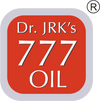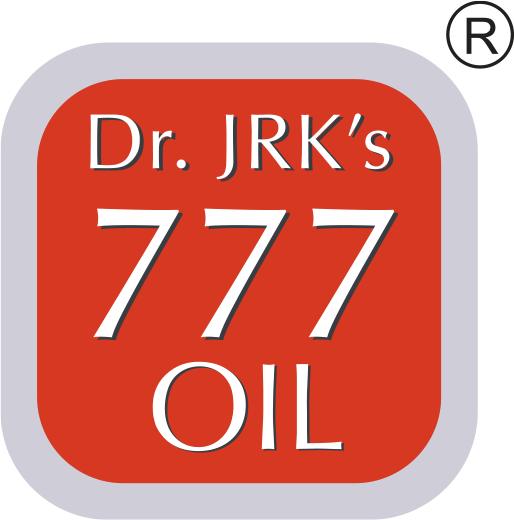The visible scaling, persistent redness and relentless itching—psoriasis makes day-to-day life a challenge, impacting both physical comfort and emotional wellbeing. This chronic autoimmune disease causes skin cells to build up rapidly, leading to these irritating symptoms. Can occur at any age but commonly appears in two peaks: early adulthood (16–22) and later adulthood (50–60).
Pathophysiology of Psoriasis
1. Immune System Dysregulation:
Psoriasis arises from an overactive immune response in which the body mistakenly targets healthy skin cells, leading to chronic inflammation.
2. T-Cell Activation:
Specific white blood cells (T-cells) become abnormally activated and release inflammatory messengers that trigger excessive skin cell production.
3. Cytokine Cascade:
Key cytokines such as TNF-α, IL-17, and IL-23 drive inflammation, stimulate rapid skin cell turnover, and sustain the disease process.
4. Accelerated Skin Cell Growth:
Due to immune signaling, skin cells multiply much faster than normal, resulting in thick, scaly, and inflamed plaques.
5. Genetic Predisposition:
Psoriasis has a strong genetic component with genes like HLA-Cw6 increasing susceptibility when combined with environmental triggers.
6. Environmental and Lifestyle Triggers:
Factors such as infections, certain medications, stress, cold weather, and skin injury can initiate or worsen flare-ups.
7. Systemic Inflammation:
Psoriasis is now recognized as a systemic inflammatory disease, not just a skin condition, with possible effects on joints and other organs.
Symptoms of psoriasis
• Red, brown or purple patches of skin
• Patches of thick, raised skin (plaques)
• Itching
• Irritation, burning or stinging
• Pustules or blisters
• Dry skin that may crack or bleed
• Flaking of dead skin
• Pitted or ridged nails
• Joint pain and swelling
Types of Psoriasis
1. Plaque psoriasis
Plaque psoriasis is the most common form of psoriasis. About 80 - 90% of people living with psoriasis experience plaque psoriasis. Psoriasis plaques appear as raised, inflamed and scaly patches of skin that may also be itchy and painful.
2. Inverse psoriasis
Inverse psoriasis appears on skin as lesions of purple-ish, brown or darker than the surrounding skin in body folds such as underarms, underbreasts, genital area etc.
3. Guttate psoriasis
Guttate psoriasis appears as many small, round and scaly red spots. The sores are covered by a fine scale and are not as thick as plaques. Guttate psoriasis on skin of color can be challenging to diagnose since lesions may not appear red or scaly.
4. Pustular psoriasis
Pustular psoriasis is a rare type of psoriasis affecting about 3% of people living with psoriasis. Symptoms of pustular psoriasis include sterile pustules (white or yellow, pus-filled, painful bumps) that may be surrounded by inflamed or reddened/discolored skin. The pus in pustules is caused by inflammation.
5. Erythrodermic psoriasis
Erythrodermic psoriasis is a rare and severe type of psoriasis. Erythrodermic psoriasis disrupts body's normal temperature and fluid balance. This may lead to shivering episodes and edema (swelling from fluid retention) in parts of the body.
Introducing Dr. JRK’s 777 oil
Dr. JRK’s 777 oil is a well-researched and clinically validated formulation for psoriasis treatment. JRK’s 777oil not only provides faster relief but also helps maintain long-term remission without side effects.
Composition
• Wrightia tinctoria – 50% w/v
(Known for its anti-inflammatory and skin-repairing properties)
• Coconut oil – 50% w/v
Benefits
• Reduces itching, redness and inflammation.
• Removes psoriatic scales.
• Moisturizes skin & prolongs remission period.
Mechanism of action
• Decreases keratinocyte proliferation, controlling excessive skin cell turnover.
• Inhibits inflammatory mediators, interleukins and cytokines, reducing inflammation.
• Possesses strong antioxidant effects helping repair and restore skin health.
Proven Efficacy
Dr. JRK’s 777 Oil offers clinically proven psoriasis treatment:
Clinical Evidence:
o CCRAS, Chennai: 108 of 281 patients achieved complete relief within 12 weeks.
o RML Hospital, New Delhi: 91.9% reduction in PASI score — comparable to Calcipotriol (90.8%).
• Quality Assurance:
Low acid value (1.2) ensures superior stability, non-rancidity and long-term efficacy — unlike market samples with values above 20.
• Safety Profile:
OECD-certified studies confirm the oil is non-toxic, non-sensitizing and safe for continuous use, including during pregnancy and lactation.
Usage instructions
1. Apply Dr. JRK’s 777 Oil liberally over the affected areas and scalp in the morning.
2. Expose the skin to sunlight for 10–15 minutes (optional).
3. Bath using Psorolin derma skincare soap for best results.
4. Continue regular use even during remission to prevent flare-ups.
Why Choose Dr. JRK’s 777 oil?
• Free from steroids and harmful chemicals.
• Backed by 30+ years of scientific and clinical validation.
• Safe for long-term, everyday use.
• Promotes clear, comfortable, and healthy skin naturally.
Living a full life with psoriasis
With growing awareness, a supportive community and advancing options like Dr. JRK’s 777 Oil—which offers the best psoriasis treatment combining efficacy and safety—there is more hope than ever before.
The journey to a healthy skin starts by understanding the skin, identifying triggers and finding the best treatment option. Dr JRK’s777 oil provides a superior treatment option for psoriasis with proven benefits. The unique composition have no side effects thus making it safe for long term use.
Trusted by thousands of patients and backed by decades of research, JRK’s 777 oil offers reliable and sustainable approach to living comfortably with psoriasis.
Remember Psoriasis does not limit your potential.



